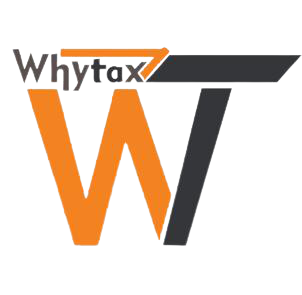Who is an E-commerce Operator (ECO)?
As per Section 2(44) of the CGST Act, 2017:
E-commerce means the supply of goods or services or both, including digital products, over a digital or electronic network.
An E-commerce Operator (ECO) is anyone who owns, operates, or manages a digital platform for such supply.
Examples: Amazon, Flipkart, Zomato, Swiggy, Ola, OLX, UrbanClap, MakeMyTrip, etc.
Even platforms that just connect buyers and sellers (like OLX or aggregator models) are treated as ECOs under GST.
Who is a Supplier?
As per Section 2(105) of CGST Act:
A supplier is the person who provides goods/services or both. It also includes an agent acting on behalf of the supplier.
Recent Update: If someone manages a platform for actionable claims (like fantasy gaming or digital vouchers), they are deemed to be a supplier, even if the supply is not by them directly.
Levy and Collection of GST under ECO – Section 9(5)
What is Section 9(5)?
Under Section 9(5) of CGST Act, the Government can notify certain services for which the ECO, and not the actual supplier, is liable to pay GST.
👉 The ECO is treated as the deemed supplier for these services.
✅ Notified Services under Section 9(5):
| Sr. No. | Service Type | ECO Liable to Pay GST? |
| 1 | Passenger transport by radio-taxi, motorcab, bike-taxi (e.g., Ola, Uber) | ✅ Yes |
| 2 | Hotel/accommodation services (if supplier is not required to register) | ✅ Yes |
| 3 | Housekeeping services (plumbing, carpentry) (if supplier is not registered) | ✅ Yes |
| 4 | Restaurant services (excluding from specified premises like 5-star hotels) | ✅ Yes |
Key Points:
- GST must be paid in cash by ECO (No ITC allowed)
- ECO must issue the tax invoice
- These rules apply even if the ECO is outside India but supplying to Indian customers (must appoint a tax representative in India)
Clarification: As per CBIC Circular No. 167/23/2021, for restaurant services, ECOs:
- Must pay GST in cash
- Cannot use ITC
- Must issue invoices themselves
- TCS is not required on restaurant services but continues for others
Who is a Recipient?
As per Section 2(93) of CGST Act:
A recipient is the person who receives goods/services, or is liable to pay for them — includes their agents too.
What is TCS?
Tax Collected at Source (TCS) under GST is applicable when an ECO collects payment on behalf of suppliers.
Applicability:
- ECO collects consideration on behalf of registered suppliers (not applicable for 9(5) services)
- Rate: Up to 1% of the net taxable value
Net Taxable Value =
Total taxable value of supplies minus returns during the month.
Compliance:
| Requirement | Details |
| Monthly filing | File TCS return in Form GSTR-8 by 10th of the next month |
| Annual Statement | File by 31st Dec of following FY |
| Rectification | Allowed until 30th Nov of following FY or filing of annual return, whichever is earlier |
| Credit | Supplier gets the TCS amount in their Electronic Cash Ledger |
Mismatch Consequence: If supplier’s and ECO’s data don’t match, the difference gets added to supplier’s tax liability.
TDS under Income Tax Act – Section 194-O
Applicability:
- Applies when an ECO facilitates sale of goods or services
- ECO must deduct TDS before paying the seller
| Particular | Detail |
| TDS Rate | 1% (if PAN available), 5% (if PAN not provided) |
| Threshold | ₹5 lakh/year per seller (only if seller doesn’t provide PAN/Aadhaar) |
| On What | Gross sale amount (including GST) |
Important: TDS under 194-O is applicable even if payment is not collected by ECO, if the sale happens via ECO’s platform.
TDS under Section 194C – Contract Payments to ECO
If a business hires an ECO for services (e.g., advertising, logistics, delivery services), Section 194C applies:
| Criteria | Details |
| Threshold | ₹30,000 per contract or ₹1,00,000 annually |
| TDS Rate | 1% (individual/HUF) or 2% (others); 20% if no PAN |
| When | Applies to contractual services (not commission sales) |
